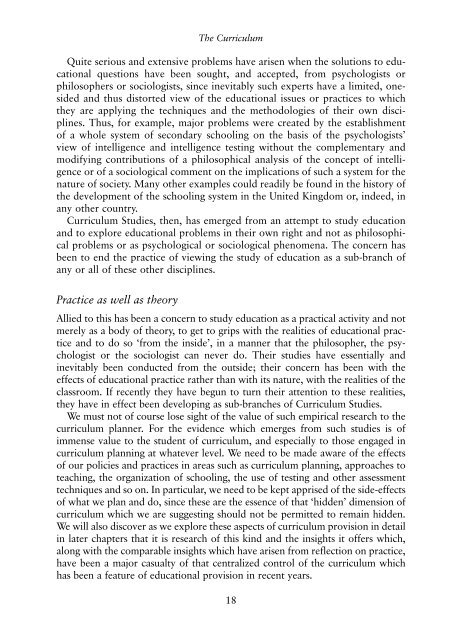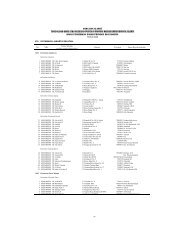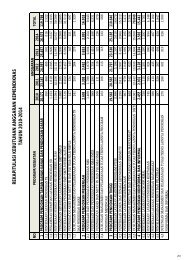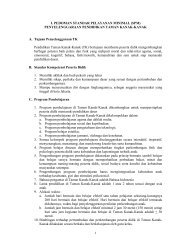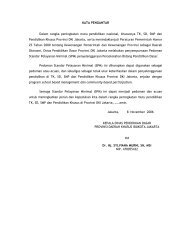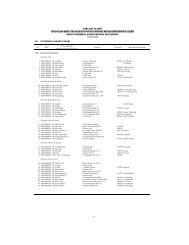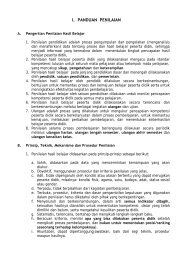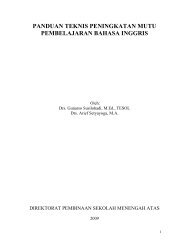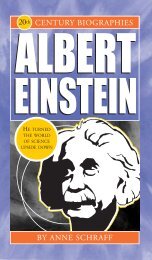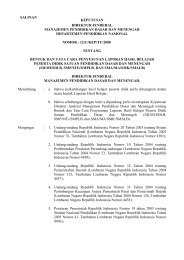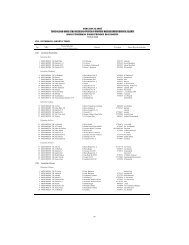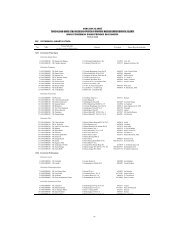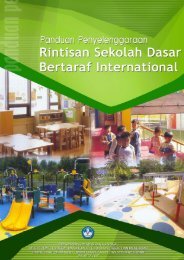The Curriculum - WordPress.com
The Curriculum - WordPress.com
The Curriculum - WordPress.com
Create successful ePaper yourself
Turn your PDF publications into a flip-book with our unique Google optimized e-Paper software.
<strong>The</strong> <strong>Curriculum</strong>Quite serious and extensive problems have arisen when the solutions to educationalquestions have been sought, and accepted, from psychologists orphilosophers or sociologists, since inevitably such experts have a limited, onesidedand thus distorted view of the educational issues or practices to whichthey are applying the techniques and the methodologies of their own disciplines.Thus, for example, major problems were created by the establishmentof a whole system of secondary schooling on the basis of the psychologists’view of intelligence and intelligence testing without the <strong>com</strong>plementary andmodifying contributions of a philosophical analysis of the concept of intelligenceor of a sociological <strong>com</strong>ment on the implications of such a system for thenature of society. Many other examples could readily be found in the history ofthe development of the schooling system in the United Kingdom or, indeed, inany other country.<strong>Curriculum</strong> Studies, then, has emerged from an attempt to study educationand to explore educational problems in their own right and not as philosophicalproblems or as psychological or sociological phenomena. <strong>The</strong> concern hasbeen to end the practice of viewing the study of education as a sub-branch ofany or all of these other disciplines.Practice as well as theoryAllied to this has been a concern to study education as a practical activity and notmerely as a body of theory, to get to grips with the realities of educational practiceand to do so ‘from the inside’, in a manner that the philosopher, the psychologistor the sociologist can never do. <strong>The</strong>ir studies have essentially andinevitably been conducted from the outside; their concern has been with theeffects of educational practice rather than with its nature, with the realities of theclassroom. If recently they have begun to turn their attention to these realities,they have in effect been developing as sub-branches of <strong>Curriculum</strong> Studies.We must not of course lose sight of the value of such empirical research to thecurriculum planner. For the evidence which emerges from such studies is ofimmense value to the student of curriculum, and especially to those engaged incurriculum planning at whatever level. We need to be made aware of the effectsof our policies and practices in areas such as curriculum planning, approaches toteaching, the organization of schooling, the use of testing and other assessmenttechniques and so on. In particular, we need to be kept apprised of the side-effectsof what we plan and do, since these are the essence of that ‘hidden’ dimension ofcurriculum which we are suggesting should not be permitted to remain hidden.We will also discover as we explore these aspects of curriculum provision in detailin later chapters that it is research of this kind and the insights it offers which,along with the <strong>com</strong>parable insights which have arisen from reflection on practice,have been a major casualty of that centralized control of the curriculum whichhas been a feature of educational provision in recent years.18


